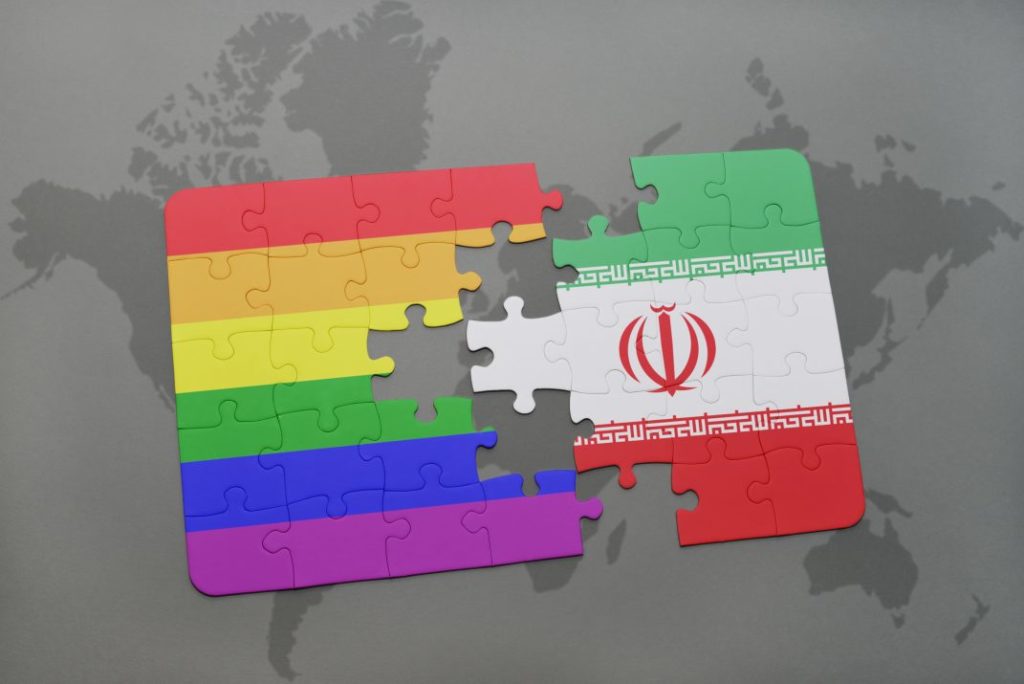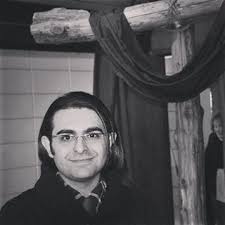The Problem Background:
The LGBT community is usually the canary in the coal mine of society, and the last car of the human rights train. The Iranian civil society is taking over the responsibility of protecting sexual minorities, replacing the top down human rights enforcement of the Pahlavi dynasty, the only time in the Iranian history that gay men were not executed by law. (Amirshekari, Amir, Ph.D.) It is a healthy thing. After all, the civil society is to act on behalf of every community vis-a-vis the governments and businesses.
The Question and Discussion
Have the LGBT rights activists been successful in their mission? What is their mission exactly? Is it the abolishment of the death penalty for homosexual behavior? Are most of the human and political activists who seek to over throw the Islamic system currently ruling Iran not already against the death penalty anyway? Is it about equal rights? How can this issue be thrusted into the national conversation going on in Iran and the diaspora? Is it even wise to do so? Have the civil society activists come to a consensus on any of these questions? Should – and can – they?
One can submit that not only there are no clear answers to any of these questions, but also that the Iranian civil society is absolutely dysfunctional when it comes to this issue. Here are the reasons why:
The majority of civil and political activists still view this issue as taboo. Some others consider supporting sexual minorities a politically risky move. The former reflects the opinion of most Iranians. The latter is the result of putting “the greater good” ahead of the principles of human rights. And they both are politically right. It is the job of the LGBT rights activists to educate both activists and the society. To be fair, a lot has been done with very little or no resources. But with hundreds of man-hours that the activists and content developers put in every month, a lot more can be done. In addition, the problems in leadership have driven wedges inside the LGBT community.
While pro bono activism has historically changed the world, nowadays activism is a very serious “business.” Instead of a few groups working professionally, there are many groups and organizations in the diaspora, and almost all of them only have volunteers. Refugees in Turkey have made up the lion share of these volunteers.
Being homosexual or transsexual, etc. does not automatically make one an specialist in this field. Activists need to be armed with various, and sensitive abilities. Propaganda of the Islamists is very strong and very professional. In order to unbranded anything and brand it anew there needs to be a force comparable – if not equal – to the opposite side. And let’s not leave the fact that this opposition (actually status quo) has a couple of thousands of years head start unsaid.
To realize how sensitive this business is, an example is warranted. At one point in the past decade, several young individuals were arrested during a party in Iran and charged with among other things, homosexual relationships. (Nikmaram, Farrokh / Confidential sources) The Iranian Queer Organization started deliberations about how to respond to that. But they were beaten to the punch by people who don’t know the business very well. They came out and condemned the detention of “homosexuals!” Now, don’t forget that in these situations the only tools an activist has are public opinion and international pressure. The third and fourth legs of this stool, lobbying and law suits are not available to LGBT Iranian activists and individuals. Although many would be outraged by such a violation of human rights, it is those who are not, that are in the driver’s seat. They remain untouched. But everyone would feel touched by a violation of the rights of their children. The detainees in the party were exactly that, children! On top of that, how did those activists know that the detainees were actually LGBT individuals. And even if they were homosexuals, common sense tells you that they are not going to embrace the charge. That reaction suddenly branded the issue as a “gay issue” and what is interesting about gays to the majority of Muslim Iranians? Anyone who has dealt with the public for a while knows that fact!

As a matter of fact, all the legs of this stool work against any kind of activity in this field. One can be executed informing the public about this issue, slapped with a “Mofsed-e-filarz” (“Corrupt on Earth” which carries the death penalty) charge. That is exactly why yours truly and many other Iranian nationals have had to leave their country, hoping they could go back one day. That one day will not come as long as the Sharialaw is the law of the land in Iran. (Preamble to the Islamic Republic constitution / Dec 2 and 3, 1979)
To create a forceful front to take the LGBT issue to the public and convince them to open their minds to it, we need unity, leadership, celebrity force, international pressure, the power of persuasion, and activism know how. Fortunately, this writer is not the only one who has come to these conclusions in the LGBT community. For example, IRQO (managed by SaghiGhahreman) started creating volunteer task forces a couple of years ago. (IRQO staff meeting minutes / 2016) Whether it is going to work in the long run or not remains to be seen.
While most of the minority groups have a lot of unity, the LGBT community does not! Most of the organizations in diaspora don’t have a working relationship. It is because this minority community is not interconnected by a widely accepted common characteristic. They are not united under a belief, nationality (or ethnicity, depending on one’s stances) race, or even age, or hobby. Most Iranian LGBT individuals have a level of identity crisis, which can be squarely blamed on the Iranian culture, (They killed homosexuals before Islam even came to be) and religion (which happens to be a very brutal one when it comes to punishments of all kind). That fact does not allow these individuals to get used to their shared identity. The first time most of Iranian LGBT individuals experience sharing a minority gender identity or sexual orientation, is in Turkey, where they are sent to certain satellite cities as asylum seekers and refugees.
The Iranian LGBT community has many leaders many of whom have antagonistic relationships with each other. To the point that one of these “leaders” even successfully sued another for defamation this year. (Cuthbert, Michelle / Canadian Lawyer Magazine / May 2, 2018) The reasons many of these leaders cannot work with one-another is not very different from the reasons why political leaders cannot work together. It is one of the reasons that has sustained the widely unpopular Islamic rulers. Among political leaders, Prince Reza [Pahlavi] has already expressed his opinion that everyone needs to be free, including “gays.” (Iran International interview with Prince Reza [Pahlavi] / Nov 1, 2018) Aside from that, three weeks before the writing of this article, the former labor activist and self-proclaimed “Persian Speaker”, Mr. Mansour Osanloo, shared an American story about a young homosexual man who had been beaten and killed by two homophobes. The caption he added to the post reads: “Let everyone live the way they want. What are [other] people’s lives and thoughts to us?” (Osanloo, Mansour/LinkedIn/ Nov 2018) But not very many other leaders have signaled any support or tolerance towards the homosexual community.
Iranian celebrities in the diaspora have not been silent on this issue. The most famous Iranian pop artist of all time, Googoosh released a music video picturing the love of a lesbian couple. (Googoosh / Behesht / 2014) And the famed dancer Mohammad Khordadian came out as homosexual. (Radio Farda / May 31, 2008) Prior to the 1979 Islamic Revolution, the main public figure with LGBT identity was the legendary show man, Fereydoun Farrokhzad, a bisexual. When he was killed decades ago at his home in Germany, the body was mutilated, and signs of sexual torture were seen on the scene of the murder. (Faraji, Hossein / Iran Azad TV/ Aug 7, 2013)
The international pressure on the IRI has seemingly stopped public executions of homosexuals. But many believe that homosexuals could still have been executed, but with added fake charges, mainly the statutory rape. The writer cannot confirm any information regarding this issue because the Islamic justice system in Iran is by no long shot transparent.
If people can learn lessons from other nations, Iranians can learn from the Europeans and Americans in the art of persuasion. It is vital not to attack those whom one wants to persuade. Doing so in the United States has just solidified the union between every hate group against sexual minorities. But on the other hand, portrayal of gay couples as parents [as in the Modern Family series] helps humanize sexual minority persons. That is the first step in changing minds and hearts. As long as homophobia exists, education must continue. That probably means forever.
Activism know how is vital to the mission of any civil rights activist. Or any other activist for that matter. The main skill one must have is communication skills. Other capabilities are also necessary. But for an activist to work in Iran, they should be aware of the said “Mufsid-e-filarz” charge. (Menashri, David / Post Revolution Politics in Iran) LGBT rights activism is extremely dangerous in Iran and many other Muslim Majority countries. It can carry the death penalty. Although the death penalty for Mufsid-e-filarz is deep inside Quran, these days it is more justified as an action against “indecency” that affects children. It could be a coincident, but other countries like Russia have tried to stifle LGBT rights activists’freedom of speech under the guise of protecting children. (Chan, Sewell / New York Times / June 20, 2017)
Conclusion
In the end, it is beneficial to help and expect the civil society to take charge in all forms of human rights activism in Iran. As experienced in the early 80s, rights given by the government can be taken by another or that same government. What is more, is that while laws protect minorities, it is education that helps normalize the unnecessary taboos in socially conservative communities.

About the writer: Farrokh Nikmaram is an American writer, and former human rights and political activist, and public speaker. Born and raised in Iran, he moved to the US as a refugee in 2011. Ever since he has published two poetry translation series and a book analyzing morality and Islam.
Sample essays:
– Homelessness; A Widespread Social Problem in The US
– Diversion Programs in Canada
– The Conscious Leadership Experience
– Role of the banking sector in the growth of Singapore’s economy
– Online Ethics
– Social Psychology
We, at Peachy Essay provide a wide range of sociology writing help which can be listed but not limited to:
– Sociology Assignment Writing Services
– Sociology Assignment Help
– Sociology Essay Help
– Sociology Essay Writing Service
– Sociology Dissertation Writing Help
– Sociology Dissertation Help






